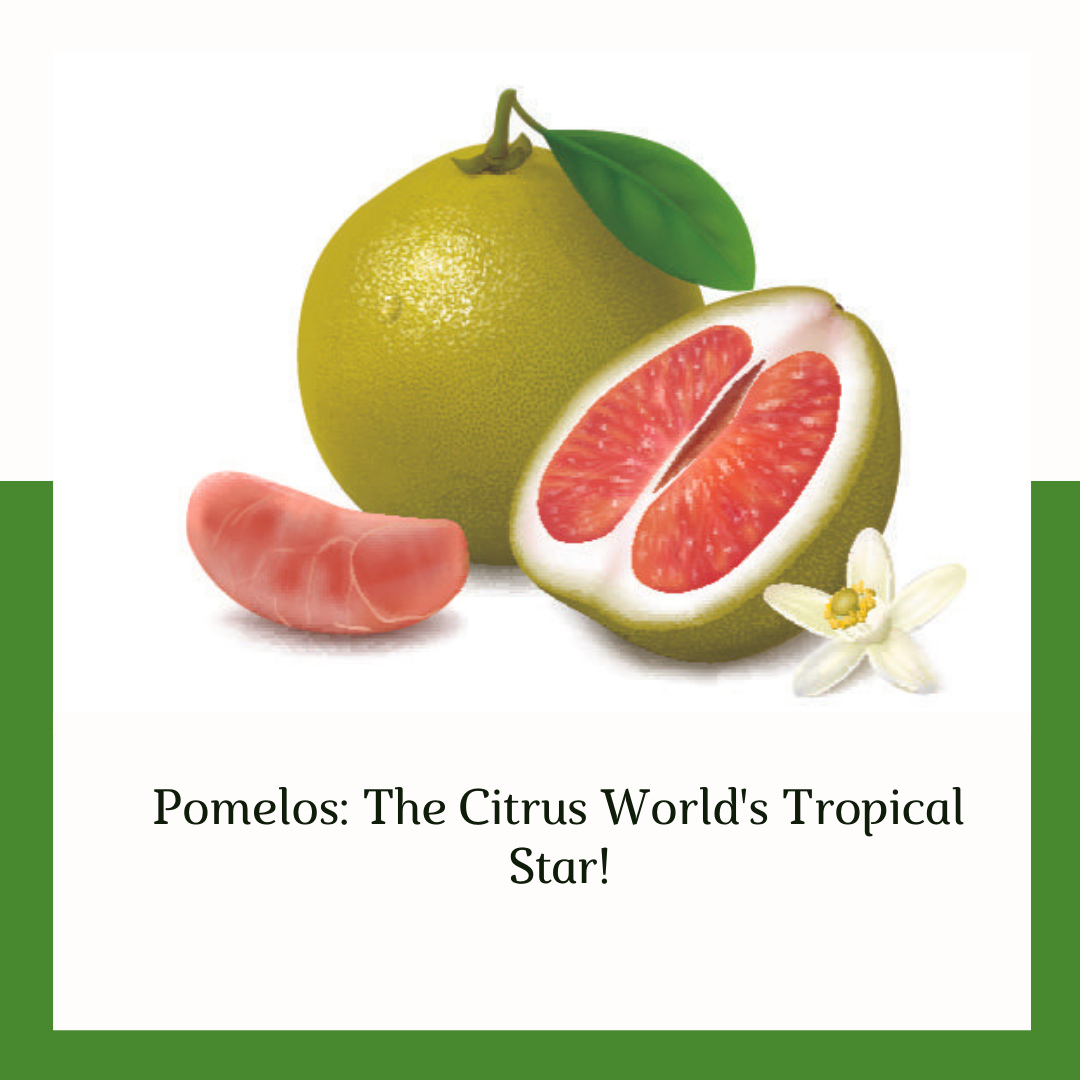
All About Pomelos: Types, Origins, Uses, and Benefits
Share
When it comes to citrus fruits, most people think of oranges, lemons, or grapefruits. However, the citrus family has a lesser-known but equally fascinating member: the pomelo. Known as the largest citrus fruit, the pomelo, also called "shaddock" or "pummelo," is a delightful tropical treat that is cherished in many cultures around the world.
Origins of the Pomelo
The pomelo is believed to have originated in Southeast Asia, particularly in regions of Malaysia, Thailand, and Indonesia. From its birthplace, it traveled across continents, becoming an essential part of diets and cultures in various countries.
Different Varieties of Pomelos
There are several varieties of pomelos, each with unique characteristics:
-
White Flesh Pomelo: This is one of the most common types. It has a green or yellow rind, and the flesh inside is pale white with a sweet taste.
-
Pink Flesh Pomelo: It has a beautiful rosy pink flesh and is slightly tangier than the white flesh variety.
-
Red Flesh Pomelo: Deep red on the inside, this variety is the most tart among the three and is a favorite for many due to its vibrant color.
-
Honey Pomelo: This is a popular type in China, named for its juicy, sweet taste reminiscent of honey.
Uses of Pomelos
Pomelos are versatile fruits and can be used in various culinary applications:
-
Raw Consumption: Pomelos are often peeled and consumed raw. The thick rind and membranes are removed to reveal the juicy segments inside.
-
Salads: In Thai cuisine, pomelo salad, known as 'Yam Som-O,' is a popular dish that combines the fruit with shrimp, coconut, and spices.
-
Preserves: In some countries, the skin of the pomelo is used to make sweet preserves or candies.
-
Beverages: Pomelo juice can be consumed on its own or mixed with other juices for a refreshing drink.
-
Cooking: Pomelo segments can be added to seafood dishes, desserts, and salsas.
Benefits of Pomelos
-
Rich in Vitamins: Pomelos are a good source of vitamin C, which is essential for a healthy immune system. They also contain vitamins A, B1, and B2.
-
Dietary Fiber: The fruit is rich in dietary fiber, promoting good digestive health and aiding in weight management.
-
Antioxidants: Pomelos contain antioxidants that help neutralize harmful free radicals in the body.
-
Potassium-Rich: They are a good source of potassium, which helps regulate blood pressure and support heart health.
-
Low in Calories: Despite its sweet taste, the pomelo is relatively low in calories, making it a great snack option for those watching their weight.
In conclusion, the pomelo is a fascinating fruit with a rich history and a plethora of varieties, uses, and benefits. If you haven't tried one yet, you're missing out on a delightful citrus experience. Next time you see a pomelo at your local grocery store or market, don’t hesitate to grab one and enjoy its sweet and tangy goodness!